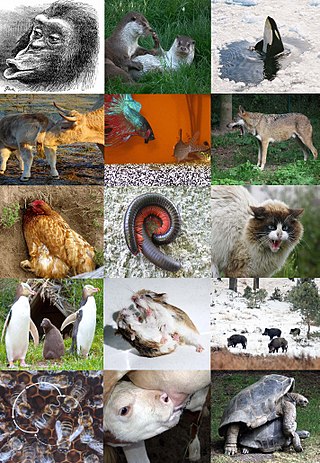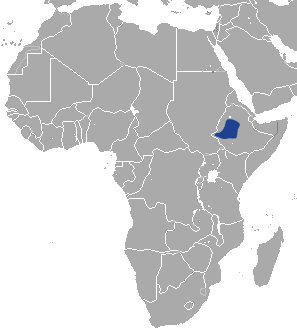
Ethology is the scientific study of animal behavior, usually with a focus on behaviour under natural conditions, and viewing behaviour as an evolutionarily adaptive trait. Behaviourism as a term also describes the scientific and objective study of animal behavior, usually referring to measured responses to stimuli or to trained behavioral responses in a laboratory context, without a particular emphasis on evolutionary adaptivity. Throughout history, different naturalists have studied aspects of animal behaviour. Ethology has its scientific roots in the work of Charles Darwin and of American and German ornithologists of the late 19th and early 20th century, including Charles O. Whitman, Oskar Heinroth, and Wallace Craig. The modern discipline of ethology is generally considered to have begun during the 1930s with the work of Dutch biologist Nikolaas Tinbergen and Austrian biologists Konrad Lorenz and Karl von Frisch, the three recipients of the 1973 Nobel Prize in Physiology or Medicine. Ethology combines laboratory and field science, with a strong relation to some other disciplines such as neuroanatomy, ecology, and evolutionary biology. Ethologists typically show interest in a behavioral process rather than in a particular animal group, and often study one type of behavior, such as aggression, in a number of unrelated species.

Biological anthropology, also known as physical anthropology, is a scientific discipline concerned with the biological and behavioral aspects of human beings, their extinct hominin ancestors, and related non-human primates, particularly from an evolutionary perspective. This subfield of anthropology systematically studies human beings from a biological perspective.
Zoology is the branch of biology that studies the animal kingdom, including the structure, embryology, classification, habits, and distribution of all animals, both living and extinct, and how they interact with their ecosystems. The term is derived from Ancient Greek ζῷον, zōion ('animal'), and λόγος, logos.

In zoology, mammalogy is the study of mammals – a class of vertebrates with characteristics such as homeothermic metabolism, fur, four-chambered hearts, and complex nervous systems. Mammalogy has also been known as "mastology," "theriology," and "therology." The archive of number of mammals on earth is constantly growing, but is currently set at 6,495 different mammal species including recently extinct. There are 5,416 living mammals identified on earth and roughly 1,251 have been newly discovered since 2006. The major branches of mammalogy include natural history, taxonomy and systematics, anatomy and physiology, ethology, ecology, and management and control. The approximate salary of a mammalogist varies from $20,000 to $60,000 a year, depending on their experience. Mammalogists are typically involved in activities such as conducting research, managing personnel, and writing proposals.

Sociality is the degree to which individuals in an animal population tend to associate in social groups (gregariousness) and form cooperative societies.

The Stazione Zoologica Anton Dohrn is a research institute in Naples, Italy, devoted to basic research in biology. Research is largely interdisciplinary involving the fields of evolution, biochemistry, molecular biology, neurobiology, cell biology, biological oceanography, marine botany, molecular plant biology, benthic ecology, and ecophysiology.

The Ethiopian hare is a species of mammal in the family Leporidae. It was first described in 1903, by the British mammalogist Oldfield Thomas. The dorsal pelage is brownish buff, and is finely grizzled with black. The ventral pelage is fluffy and white in colour. Endemic to Ethiopia, it is found in the Afromontane Biozone of Ethiopia, and in the borders of the Sudanian Savanna Biozone. It is rated as a least concern species by the International Union for Conservation of Nature.
Danilo Mainardi was an Italian ethologist, scholar, and writer.
Contributions to Zoology is a scientific journal that started in 1848 as a publication of the Committee in charge of the library of the Dutch Royal Zoological Society "Natura Artis Magistra" and became integrated in the library of the University of Amsterdam in 1939. Since 2019 the journal is published by Brill publishers, Leiden. The journal has been freely available online since 1997. The current editor-in-chief is Ronald Vonk from Naturalis Biodiversity Center, Leiden.
Unione Zoologica Italiana is an Italian scientific society devoted to Zoology especially that of Italy.

Methods in Ecology and Evolution is a monthly peer-reviewed scientific journal covering methodologies in ecology and evolution. It was established in 2010 and is the 5th journal of the British Ecological Society. It is published by Wiley-Blackwell on behalf of the British Ecological Society and the editors-in-chief are Aaron M. Ellison, Natalie Cooper, Nicolas Lecomte, and Huijie Qiao . In June 2022 it was announced that the journal would switch to a full open access publishing model from January 2023, with all papers submitted to the journal from 6 July 2022 open access on publication.

Francesca Gherardi was an Italian zoologist, ethologist, and ecologist. Most of her work was performed at the Department of Biology of the University of Florence, Italy, where she was a researcher and an associate professor.

Carlo Pollonera was an Italian painter, particularly of landscapes, and also an important malacologist.
Animal Welfare is a quarterly, peer-reviewed scientific journal covering studies on the welfare of animals, whether in captivity or in the wild. Its scope includes animal welfare science, animal cognition, ethology, behavioural ecology, evolution of behaviour, sociobiology, behavioural physiology, population biology, neurophysiology and abnormal behaviour. It was established in 1992 and is published by the Universities Federation for Animal Welfare. The editor-in-chief is James K. Kirkwood.
This bibliography lists publications authored by the Italian malacologist and painter Carlo Pollonera (1849-1923). The article endeavours to be comprehensive, and includes all works listed in previous bibliographies of Pollonera. Zoological Record and AnimalBase have also been utilised. Works listed without an internet link have generally not been examined directly. Dates given here follow those printed on the individual issue wrappers, which sometimes differ from those on the title page of the volume.
Kevin de Queiroz is a vertebrate, evolutionary, and systematic biologist. He has worked in the phylogenetics and evolutionary biology of squamate reptiles, the development of a unified species concept and of a phylogenetic approach to biological nomenclature, and the philosophy of systematic biology.

Leopoldo Maggi was an Italian physician, craniologist and naturalist.
Leo Pardi (1915–1990) was an Italian zoologist and ethologist, the initiator of modern ethological research in Italy.
Zoological Studies is a peer-reviewed open access scientific journal covering zoology, with focuses on animal behavior, comparative physiology, evolution, ecology, systematics and biogeography. It is published by the Biodiversity Research Center, Academia Sinica, Taiwan. The editor-in-chief is Benny K.K. Chan. It was established in 1962 as the Bulletin of the Institute of Zoology, Academia Sinica, receiving its current title in 1994.

Giulio Chiarugi was an Italian anatomist and embryologist. He was one of the founders of experimental embryology in Italy and wrote a landmark treatise on embryology, Trattato di embriologia (1944). He also founded the zoological journal Monitore Zoológico Italiano in 1890.



















